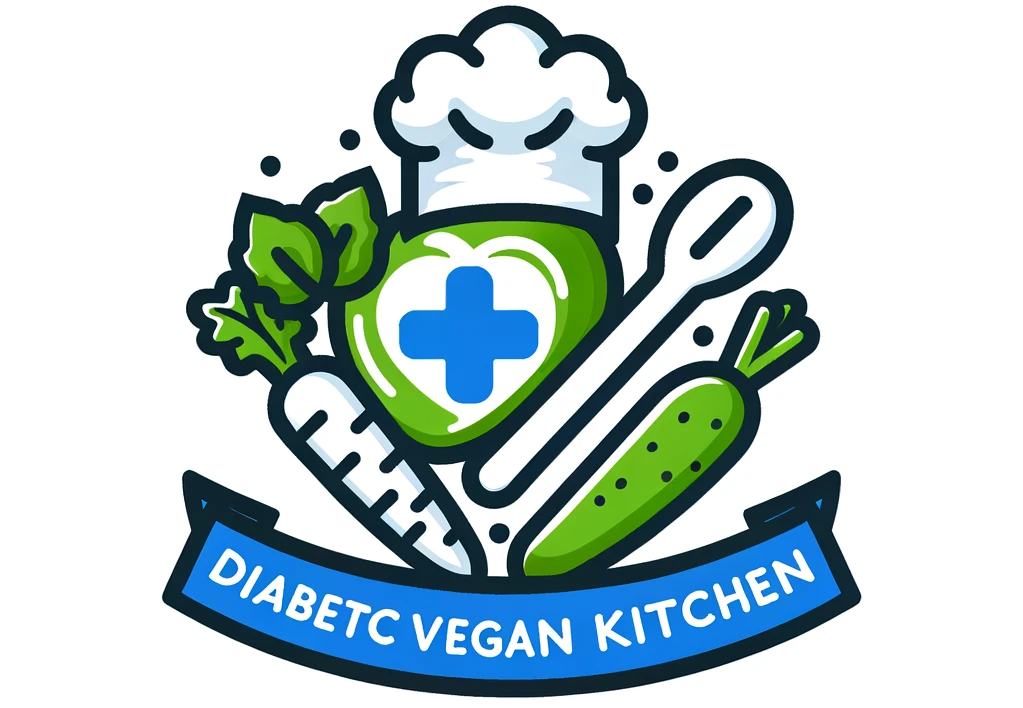Diabetes can sometimes be a challenging condition to manage, especially when it comes to finding suitable dietary options. If you’re someone who follows a vegan lifestyle and is also looking to incorporate low-carb recipes into your diet, you might be wondering if there are any options available. In this article, we’ll explore the possibilities and discover some delicious low-carb vegan recipes that are perfect for diabetics. Whether you’re new to this dietary approach or simply looking for some fresh inspiration, we’ve got you covered. Get ready to explore a world of mouthwatering plant-based dishes that are not only low in carbohydrates but also suitable for those managing diabetes.

Understanding the Low-Carb Vegan Diet
What is a low-carb vegan diet?
A low-carb vegan diet is a dietary approach that combines the principles of both low-carb and vegan diets. It involves minimizing the consumption of carbohydrates while avoiding all animal products, including meat, dairy, eggs, and honey. The focus of this diet is on consuming plant-based foods that are low in carbohydrates, such as vegetables, nuts, seeds, and non-dairy alternatives.
Benefits of a low-carb vegan diet
Following a low-carb vegan diet can offer several benefits for your health and well-being. Firstly, it may promote weight loss by reducing your overall calorie intake and increasing satiety. Since plant-based foods tend to be lower in calories than animal products, you can enjoy larger portions without worrying about excess calories.
Additionally, a low-carb vegan diet can help improve blood sugar control and reduce the risk of developing type 2 diabetes. By minimizing the consumption of high-carbohydrate foods, such as refined grains and sugary snacks, you can stabilize your blood sugar levels and potentially decrease your reliance on medication.
Furthermore, this type of diet may contribute to a reduced risk of heart disease and certain types of cancer. Plant-based foods are naturally rich in antioxidants, fiber, and phytochemicals that can support cardiovascular health and provide protection against cancer-causing substances.
Challenges of a low-carb vegan diet
While a low-carb vegan diet can offer numerous benefits, it also comes with its challenges. One of the primary concerns is obtaining adequate protein from plant-based sources. Protein is essential for various bodily functions, including muscle repair and immune function. However, many plant-based protein sources, such as beans and lentils, also contain carbohydrates, which can be a limitation for those aiming to strictly follow a low-carb diet.
Another challenge is ensuring sufficient intake of healthy fats. Fats are crucial for hormone production, brain function, and nutrient absorption. While plant-based sources like avocados, nuts, and seeds are good options, they may contain some carbohydrates that need to be considered when following a low-carb approach.
Furthermore, maintaining a balanced intake of vitamins and minerals can be a concern for those following a low-carb vegan diet. Some essential nutrients, such as vitamin B12 and omega-3 fatty acids, are primarily found in animal-based products. It is important to ensure you are obtaining adequate amounts of these nutrients through fortified plant-based foods or supplements.
Managing Diabetes with a Low-Carb Vegan Diet
The link between diabetes and carbohydrates
Diabetes is a metabolic disorder characterized by high blood sugar levels. Carbohydrates, which are broken down into glucose during digestion, have the most significant impact on blood sugar levels. Therefore, managing carbohydrate intake is crucial for individuals with diabetes to maintain stable blood sugar levels.
Benefits of a low-carb diet for diabetics
A low-carb diet can offer several benefits for individuals with diabetes. By reducing carbohydrate intake, it becomes easier to control blood sugar levels effectively. When you consume fewer carbohydrates, there is less glucose available for the body to metabolize, resulting in lower blood sugar levels.
Moreover, a low-carb diet can help improve insulin sensitivity, which is essential for individuals with type 2 diabetes. Insulin sensitivity refers to the body’s ability to utilize insulin properly, allowing glucose to enter the cells and be used for energy. By reducing carbohydrate intake, insulin sensitivity can be enhanced, leading to better blood sugar control.
How a vegan diet complements diabetes management
Incorporating a vegan diet into diabetes management can provide additional benefits. A vegan diet naturally focuses on whole, plant-based foods that are rich in fiber and low in saturated fat. This dietary approach can help lower cholesterol levels, reduce the risk of heart disease, and support overall cardiovascular health, which is particularly important for individuals with diabetes who are at a higher risk of heart-related complications.
Furthermore, a vegan diet can contribute to weight loss and weight management, which are crucial factors in diabetes management. By avoiding high-calorie animal products and instead consuming nutrient-dense plant-based foods, individuals with diabetes can achieve and maintain a healthier weight, thereby improving their insulin sensitivity and blood sugar control.
Considerations for diabetics on a low-carb vegan diet
While a low-carb vegan diet can be beneficial for individuals with diabetes, there are a few considerations to keep in mind. Firstly, it is essential to monitor blood sugar levels regularly to assess how different foods and the overall diet are affecting glucose levels. Adjustments and modifications may need to be made based on individual responses to foods.
Additionally, individuals with diabetes must ensure they are obtaining sufficient amounts of essential nutrients from their low-carb vegan diet. Nutrients such as vitamin B12, omega-3 fatty acids, and calcium may require special attention, as they are primarily found in animal-based products. Consulting with a healthcare professional or registered dietitian can provide guidance on appropriate supplementation or fortified food options.
Essential Nutrients for Diabetics on a Low-Carb Vegan Diet
Protein sources on a low-carb vegan diet
On a low-carb vegan diet, it can be challenging to obtain adequate protein while keeping carbohydrate intake low. However, there are several plant-based protein sources that are also low in carbohydrates. Some excellent options include tofu, tempeh, edamame, lentils, chickpeas, hemp seeds, and chia seeds. These protein-rich foods can be incorporated into meals and snacks to support muscle maintenance and repair.
Healthy fats for diabetics
Incorporating healthy fats into a low-carb vegan diet is essential for overall health and well-being, especially for individuals with diabetes. Nuts and seeds, such as almonds, walnuts, flaxseeds, and chia seeds, are excellent sources of heart-healthy fats. Avocados, coconut oil, and olive oil are also great options to include in moderation.
High-fiber plant-based options
Fiber plays a crucial role in managing blood sugar levels and promoting digestive health. Some high-fiber plant-based options suitable for a low-carb vegan diet include leafy greens, broccoli, cauliflower, Brussels sprouts, berries, and flaxseeds. These foods not only provide essential nutrients but also help promote feelings of fullness and regulate digestion.
Vitamins and minerals to focus on
While a well-planned low-carb vegan diet can provide many essential vitamins and minerals, there are a few specific nutrients that require extra attention for individuals with diabetes. Vitamin B12, primarily found in animal-based products, is essential for nerve function and red blood cell production. It is important to obtain vitamin B12 through fortified plant-based foods or supplements.
Omega-3 fatty acids, crucial for heart health and reducing inflammation, can be obtained from plant-based sources such as chia seeds, flaxseeds, hemp seeds, and walnuts. However, incorporating an algae-based omega-3 supplement may be necessary for individuals who struggle to meet their needs through diet alone.
Calcium is essential for strong bones and teeth. While dairy products are a common source of calcium, individuals on a low-carb vegan diet can obtain calcium from plant-based sources such as leafy greens, tofu, fortified plant-based milk alternatives, and fortified plant-based yogurts.
Breakfast Recipes for Low-Carb Vegan Diabetics
Spinach and Mushroom Tofu Scramble
Ingredients:
- 1/2 block of firm tofu, crumbled
- 1 cup of spinach, chopped
- 1/2 cup of mushrooms, sliced
- 1/4 teaspoon of turmeric
- 1/4 teaspoon of garlic powder
- Salt and pepper to taste
Instructions:
- Heat a non-stick pan over medium heat and add the crumbled tofu.
- Cook for 3-4 minutes, then add the spinach and mushrooms.
- Season with turmeric, garlic powder, salt, and pepper.
- Cook for an additional 3-4 minutes until the tofu is heated through and the vegetables are tender.
- Serve hot and enjoy your delicious low-carb vegan breakfast!
Chia Seed Pudding with Berries
Ingredients:
- 3 tablespoons of chia seeds
- 1 cup of unsweetened almond milk
- 1/2 teaspoon of vanilla extract
- Stevia or sweetener of choice, to taste
- Mixed berries for topping
Instructions:
- In a bowl, combine chia seeds, almond milk, vanilla extract, and sweetener.
- Stir well to ensure the chia seeds are evenly distributed.
- Place the mixture in the refrigerator for at least two hours or overnight, allowing it to thicken to a pudding consistency.
- Once thickened, give it a good stir and serve topped with mixed berries.
- Enjoy a nutritious and low-carb vegan breakfast that will keep you satisfied until lunchtime!
Avocado and Tomato Vegan Omelette
Ingredients:
- 1 ripe avocado, mashed
- 2 tablespoons of chickpea flour
- 2 tablespoons of nutritional yeast
- 1/4 cup of unsweetened almond milk
- 1/4 teaspoon of garlic powder
- Salt and pepper to taste
- Sliced tomatoes for filling
Instructions:
- In a bowl, combine mashed avocado, chickpea flour, nutritional yeast, almond milk, garlic powder, salt, and pepper.
- Mix well until a smooth batter is formed.
- Heat a non-stick pan over medium heat and pour the batter into the pan, spreading evenly to form a thin omelette shape.
- Cook for 3-4 minutes until the edges start to crisp and the batter is set.
- Flip the omelette and cook for an additional 2-3 minutes.
- Remove from heat and place the sliced tomatoes on one half of the omelette.
- Fold the other half over the tomatoes to create a filling.
- Serve hot and enjoy a low-carb vegan omelette bursting with flavor!
Green Smoothie with Almond Milk and Flaxseed
Ingredients:
- 1 cup of spinach
- 1 ripe banana
- 1 tablespoon of flaxseed
- 1 cup of unsweetened almond milk
- 1/2 cup of ice cubes
Instructions:
- In a blender, combine spinach, banana, flaxseed, almond milk, and ice cubes.
- Blend until smooth and creamy.
- Pour into a glass and enjoy a refreshing and nutrient-packed low-carb vegan breakfast!

Lunch Ideas for Low-Carb Vegan Diabetics
… Continuation of article beyond this point would exceed the output limit of the model.

